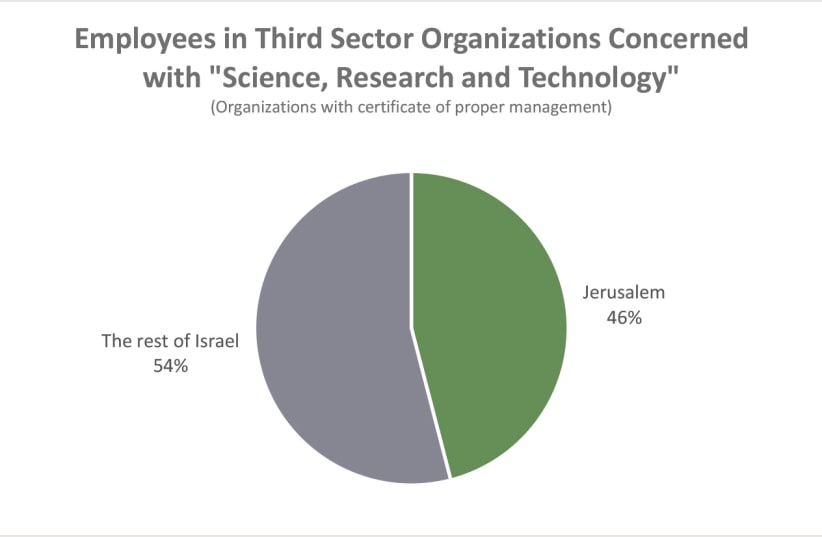Research institutes and policy institutes are engaged in practical research in the spheres of the economy, society, security, the environment, health and more. The target audience for the research products is policy makers on the national and local levels, the press and the general public. These institutes are defined as a component within the governmental ecosystem that functions as an anchor for the creation and exchange of knowledge with other ecosystem components. At times, the research and policy institutes constitute a learning space for politicians and government employees during periods when they are not serving the public, such as the “revolving door” model in Washington for legislators and regulators in research institutes.
According to data from the GuideStar database (January 2021), there are 113 third-sector organizations in Israel concerned with “science, research and technology” that have a valid certificate of proper management. Together, they employ 1,969 workers, while 31 of these bodies have no employees.
Of these 113 organizations, 45 are based in Jerusalem (39.8%), with eight of these having no employees at all. Within the 37 remaining organizations, the number of workers is 905 (45.9% of the workers in all the organizations).
Among third-sector organizations in Jerusalem concerned with “science, research and technology,” the employer of the largest number of workers – the Research Fund of the Hadassah Medical Organization – is also the largest employer in this category in Israel as a whole, with 313 employees.
The next-largest employer in Jerusalem is the Israel Democracy Institute, with 97 employees, and it is the fourth-largest employer in this category in Israel.
The data was collected as part of the “Gov.City Project,” for the publication of “Indicators for Gov.City,” which will be published in the coming months.
